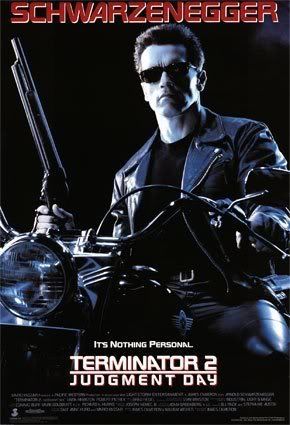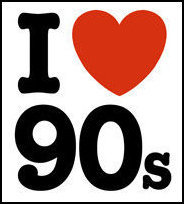
Once you've got a bona fide blockbuster on your hands, it can be tough to ignore the glistening temptation of franchising. Provided most of your original cast is willing to come back for a second round, a sequel can seem like the next logical step in milking a successful movie. You've already got your concept, your characters, and your proven success; things are poised to proceed regardless of whether or not you can maintain the quality of the original. Then again, in some cases, the original wasn't all that great, so you have little chance to disappoint critics at your second go. It's a win-win all the way.
Moviegoers clearly don't listen to enough Public Enemy, or else we'd know better than to believe the movie industry's self-promoting hype. Studios often generate so much hype over a sequel that it far outperforms its predecessor. The original may have been a hit, but the built-up anticipation for a follow up bolsters the initial fan base. Movie patrons are ravenous for the next installment of their favorite movie, and movie makers are equally voracious for their money.
Whether they were a one-note success or translated well into serial, all of these movies have a common bond: they brought in far more money than the initial film. It just goes to show that when faced with a decision of movies, we're far more likely to stick with what's familiar.
Austin Powers: The Spy Who Shagged Me
Austin Powers: International Man of Mystery domestic gross: $53,883,989
Austin Powers: The Spy Who Shagged Me domestic gross: $206,040,086
When your original movie ends happily with the romantic leads ensconced in wedded bliss, there's really only one way to move the story forward: blow up the bride. At least that seemed to be the Austin Powers' strategy, killing off Elizabeth Hurley in a the first few minutes of the movie to make room for younger, blonder starlet Heather Graham. The Austin Powers series parodied 60s spy movies, featuring Mike Myers in multiple roles as Austin Powers, Dr. Evil, and the less-appealing Fat Bastard.
The first movie was fairly well-received, and certainly boasted a meatier plot than its sequel. The Spy Who Shagged Me focuses on Powers' lost mojo and spends a lot of time cashing in on signature jokes from the first movie. It wasn't brilliant, but it was still amusing enough to hold our attention. Considering some of Mike Myers' more recent projects (The Love Guru, anyone?), this sequel is looking better all the time.
Terminator 2: Judgment Day
Terminator domestic gross: $38,371,200
Terminator 2 domestic gross: $204,843,345
Terminator 2 taught us a valuable lesson about sequels: they can be just as great as the original, if you're willing to blow a hundred million on production and effects. At the time of its release, Terminator 2 was the most expensive movie ever made. The expenditures must have paid off, though, as the movie was a huge financial and critical success. The movie is pure action, giving us thrilling chases and exciting explosions, though it does bring out a bit more heart than the first. Terminator 2 performed outstandingly well at the box office, but we've come to expect nothing less of James Cameron. That guy knows how to bring it.
Toy Story 2
Toy Story domestic gross: $191,796,233
Toy Story 2 domestic gross: $245,823,397
Toy Story wowed audiences everywhere with its innovative computer animation, so it's no wonder the movie left us eager for more. So eager, in fact, that a third installment of the series is scheduled for release in June 2010. We can only hope it lives up to the solid sequel, a movie that claims the rare honor of an 100% fresh rating on Rotten Tomatoes boasting 130 positive reviews. Not bad, Pixar. That tidbit would almost be enough for me to relinquish my lighthearted vendetta against you for making me cry so profusely at the beginning of Up. It really fogged up my 3-D glasses.
Mission Impossible II
Mission Impossible domestic gross: $180,981,886
Mission Impossible II domestic gross: $215,409,889
With music that exciting, how can you resist lining up to screen the next installment. It's really got a way of pumping that adrenaline to a point that we can ignore the facts that the plot doesn't make all that much sense. It didn't in the first movie, either, so we're pretty prepared for that sort of a turn of events. The plot is way too complex for me to summarize in 100 words or less, but suffice it to say the action and excitement far outweighs the significance of any plot point. MI:II seemed more at ease with sacrificing character development to suspenseful action. It doesn't have to pretend to be nuanced and complicated. It just needs to get the blood flowing.
Ace Ventura: When Nature Calls
Ace Ventura: Pet Detective domestic gross: $72,217,396
Ace Ventura: When Nature Calls domestic gross: $108,360,063
Toilet humor in the title is not usually a promising way to start a movie, but in this case it's just emblematic of the filmmakers knowing their juvenile audiences. Just like the original, the movie is completely ridiculous, with plot and character always falling secondary to jokes. It doesn't matter much when kids are your target demographic: we'd have watched almost anything. For our accompanying adult guardians, it was probably pretty painful, but we cracked up the whole way through.
Highlander II: The Quickening
Highlander domestic gross: $5,900,000
Highlander II: domestic gross: $15,556,340
Watch Roger Ebert call it one of the worst movies of all time...
I'll be straight with you here: I've never seen Highlander, nor have I seen its follow-up Highlander II: The Quickening. I just really love that title. It's so shamelessly cliche. "The Quickening". I like that. The film was universally panned by critics, but it did far outperform Highlander.
Die Hard 2
Die Hard domestic gross: $83,008,852
Die Hard 2 domestic gross: $117,540,947
Titlewise, this just can't compare to Highlander: The Quickening, though the Die Hard franchise picks it up in later installments with flashy names like Die Hard with a Vengeance. Actually, I just learned that movie posters advertised the sequel as Die Hard 2: Die Harder, which is actually pretty awesome. When Bruce Willis's character muses, "How can the same thing happen to the same guy twice?" he's not kidding. It's pretty similar, but the action makes up for it. It wouldn't be my first pick for a moving piece of cinema, but it's got all the makings of a solid summer blockbuster.
Lethal Weapon II
Lethal Weapon domestic gross: $65,207,127
Lethal Weapon II domestic gross: $147,253,986
Hearken back to a simpler time, when Mel Gibson wasn't taking on lofty religious film projects, begrudging the Jews, and coining the colloquialism "Sugar Tits". Back in the 90s, Mel Gibson was still known as something of a movie star hunk. Whatever the reason, he certainly put butts in the seats. Lethal Weapon II had all of the action of the original, with exciting fast-paced scenes and gratuitous violence. It even got a little political, condemning South African apartheid. It wasn't exactly a documentary on inequities in South African society, but it was a nice touch.
Churning out a sequel may be a formulaic path to success, but these movies have proven they can make it work. While the third and fourth installments in some of these series may have wavered a bit in quality, most of these (with the obvious exception of Highlander II: The Quickening) managed to capture most of the magic of the original. So keep your fingers crossed, children of the 90s, for the forthcoming Toy Story 3. Despite what many of the above franchises may suggest with their declining third films, hopefully in this case the third time is indeed a charm.





